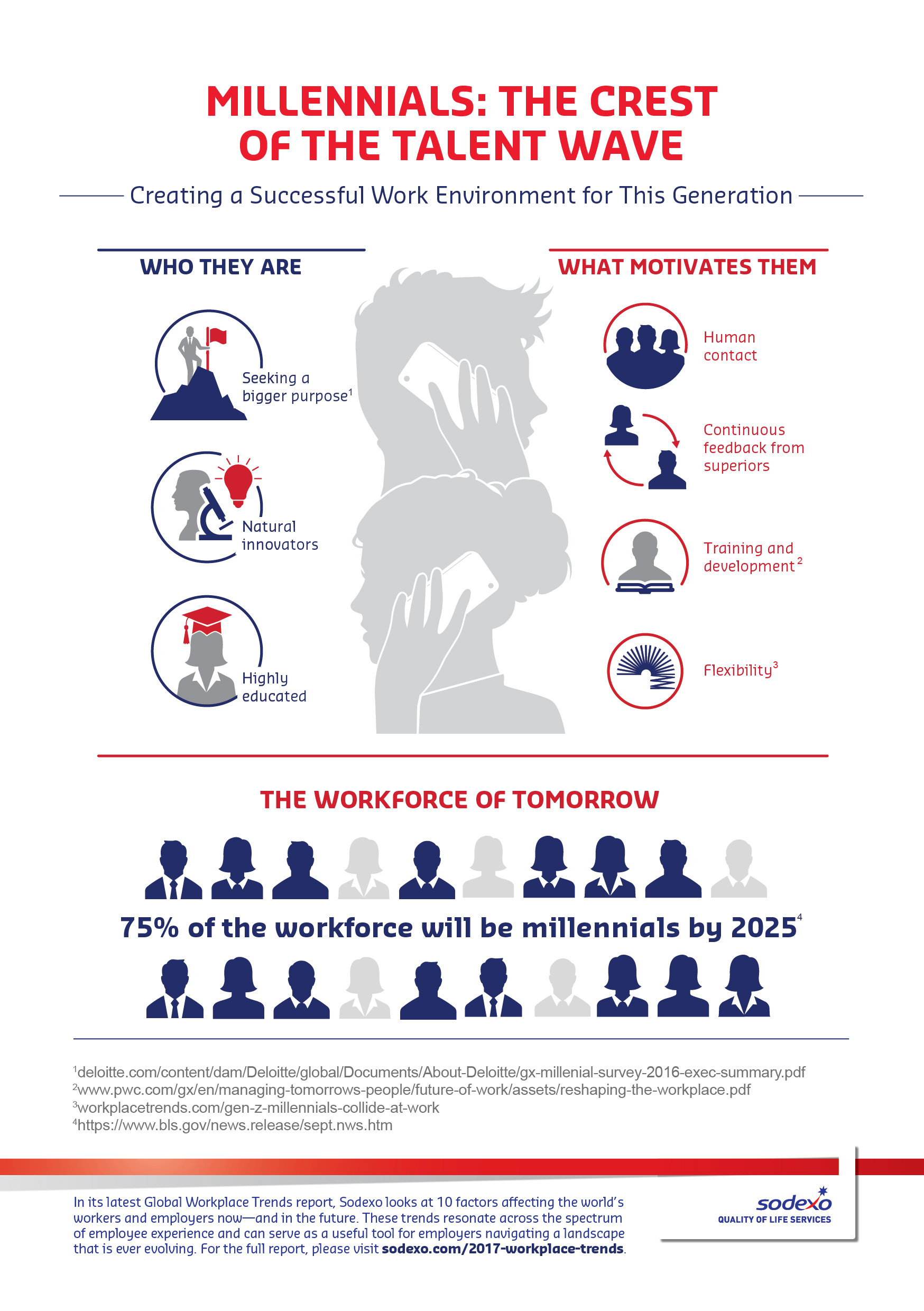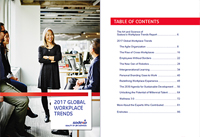Unlocking the potential of millennial talent
A new understanding of what drives this generation
NOW
To break the cycle of generational stereotyping and capitalize on the opportunities uniquely presented by the millennial generation, companies in emerging and developed nations alike are cultivating a new understanding of this cohort and why they matter. By creating a culture where millennials are engaged, employers are benefiting from the collaboration, creativity and authenticity that they bring to the table.
NEXT
Millennials now represent the largest share of the labor market — 32% — a number that will only grow over the next decade — in fact, it is estimated that by 2025, they will comprise 75% of the global workforce. When millennials and Gen Z employees across 10 global markets were quizzed in 2014, both generations chose health care coverage as the most important employee benefit. But by September 2016, when a follow-up study was conducted, their priority had shifted to work flexibility. Yet only 34% of companies now offer it.
By necessity, this will change: Corporations and enterprises will offer millennials the same freedom, flexibility and mobility they crave from startups — as well as providing leadership training earlier. Employers will also give millennials opportunities to put their entrepreneurial spirit to work, both within and outside the company. They won’t discourage millennial employees from taking the initiative on a new project, or even from having side jobs; this actually makes them more entrepreneurial (good for the company) and provides a sense of freedom (good for the employee).
To go further
About the 2017 Global Workplace Trends
Every year, Sodexo looks at the main factors affecting the world’s workers and employers now — and in the future. These trends resonate across the spectrum of employee experience and can serve as a useful tool for employers navigating a landscape that is ever evolving.














